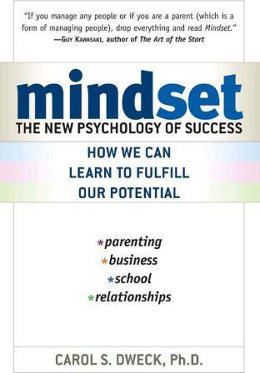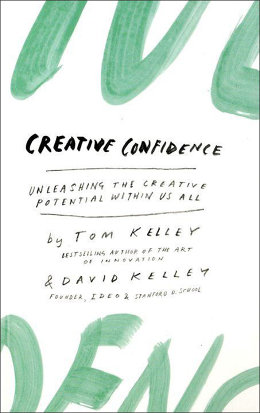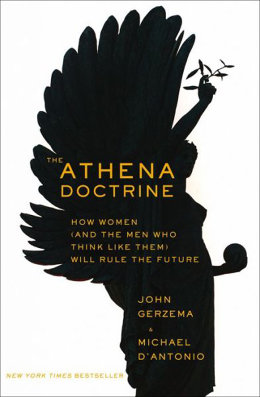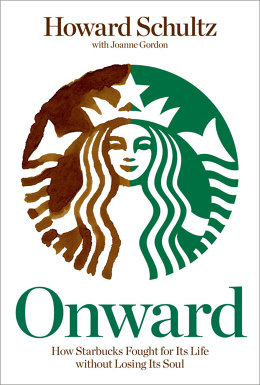 “The future is already here, it’s just not evenly distributed.”
“The future is already here, it’s just not evenly distributed.”
– William Gibson
A close friend and former colleague of mine recently advised me to “go easy” on my use of the expression “lead from the heart.” Fully aware that I’d written a book with that title, he nevertheless sought to warn me that many people in business continue to believe this is a particularly weak idea.
My friend was, of course, looking out for my best interests, and the truth is, I knew he was right. I’ve met with with many senior executives who gave me their polite attention – but conveyed through invisible signals their deep resistance to bringing any amount of heart into workplace management.
You see, for as long as most of us have been alive, business has believed it best to lead with our minds – and never the heart.
But I’ve just finished reading five new books that collectively prove our views of leadership are undergoing a profound change.
Insight from a Stanford University professor, the all-time winningest NBA coach, two geniuses of innovation and design, a Pulitzer Prize recipient and best-selling author – and one of Wall Street’s most respected CEOs – all provide a clear view of the future. What they unequivocally show is that the way to excel in managing human beings in the 21st Century requires breaking away from traditional beliefs.
Drawing upon extraordinary personal success in addition to unimpeachable new research, they prove that authentically caring about the growth and well-being of workers – and ensuring they’re consistently made to feel heard, valued, supported and appreciated – already have become the truly differentiated practices of our best leaders. The bottom-line conclusion from this collection of thought: having a great mind alone no longer can make you an effective leader; you also need an active and engaged heart:
MINDSET: THE NEW PSYCHOLOGY OF SUCCESS/CAROL DWECK

The traditional view in business is that people are born with a fixed amount of intelligence and talent; individual capabilities are firmly set in stone.
This idea, what Stanford University professor, Carol Dweck, calls a “fixed mindset,” influences workplace managers to leverage employees who quickly display natural ability – and to invest little time and resources seeking to develop all the others.
Benjamin Bloom, eminent educational researcher, studied 120 outstanding achievers in numerous fields – world-class athletes, mathematicians, concert pianists, et al – and discovered few of them were remarkable as children. They only revealed their capabilities once their training began in earnest.
Predicated on this and other remarkable research, Dweck blows up the long-enduring paradigm of human limitation. She proves that a person’s potential is “unknown and unknowable.” Regardless of talent, aptitude and IQ – people can greatly expand their abilities through effort, thoughtful coaching, and experience.
Dweck’s work represents a hugely expansive idea in business. She shows that leaders who possess a fixed mindset greatly limit employee (and, therefore, organizational) performance. Alternatively, when managers foster a “growth mindset,” they intentionally challenge, mentor, and nurture the development of their people knowing their future contributions will expand as they sprout new competencies.

Widely considered the greatest coach in NBA history, Phil Jackson won a record 11 championships – 6 with the Chicago Bulls and 5 with the Los Angeles Lakers – and led his teams to victory in over 70% of the games they played.
Jackson was a standout college player, and won two “rings” as a player with the New York Knicks. But once he was given his own teams to lead, he broke all the traditions of coaching professional athletes.
Knowing that many players had a tendency to get down when they weren’t scoring well – or when their team had fallen far behind – he taught them mindfulness techniques, and the importance of staying focused in the present moment.
Seeking to build a high degree of trust, he met with players individually, and intentionally learned about their backgrounds and motivations. “I cared for them as a person,” he writes, “not just a basketball factotum.”
Highly influenced by a lifelong study of Zen Buddhism, native American practices, and classical Chinese philosophy – to name only a few of his ancient wisdom sources – he placed extraordinary emphasis on selfless teamwork and collaboration. He taught players that winning in any aspect of life is inextricably linked to personal character and inner strength. To this end, he openly sought to influence and motivate them spiritually.
“I can’t pretend to be an expert in leadership theory,” Jackson writes. “But what I do know is that the art of transforming a group of young, ambitious individuals into an integrated championship team is not a mechanistic (X’s and O’s) process. It’s a mysterious juggling act that requires not only a thorough knowledge of the time honored laws of the game, but also an open heart, a clear mind and a deep curiosity about the ways of the human spirit.”
CREATIVE CONFIDENCE: UNLEASHING THE CREATIVE POTENTIAL WITHIN ALL OF US/TOM KELLEY AND DAVID KELLEY

We don’t always think of creativity as being essential to leadership success, yet a recent IBM survey of more than 1,500 CEOs reports that its become the single most important competency in organizations today.
And few people know more about the creative process – the ability to produce something new in the world – than the two Kelley brothers. David is a founder of IDEO, arguably the most influential design and innovation firm in the world – and head of Stanford University’s design school (“d.school”). Tom is general manager of IDEO, the company that invented Apple’s first mouse and the Pringle potato chip, and has received 346 design awards since the firm was founded in 1991.
In a book that was written after David was diagnosed with terminal cancer – and then miraculously recovered – the siblings were motivated to share their greatest insights into “design thinking.” Approaching their work from an intensely human perspective is the cornerstone of their uncommon process.
“The notion of empathy and human centeredness is not widely practiced in many corporations,” the authors write. “If you do a word association with ‘business person,’ empathy doesn’t come up much.” But for us, “it’s the ability to see and experience through another person’s eyes, to recognize why people do what they do. And we’ve found that figuring out what other people need is what leads to the most significant innovations.”
When creating any new product or system in business, the Kelleys know they must arrive at solutions that are both feasible and economically viable. But they believe their exceptional success has come from balancing these two factors with an intentional understanding of human needs. “We’re not suggesting that anyone base a career or run an organization solely on feeling, intuition and inspiration,” the authors say. “But an over-reliance on the rational and analytical can be just as risky.”
THE ATHENA DOCTRINE: HOW WOMEN AND THE MEN WHO THINK LIKE THEM WILL RULE THE FUTURE/ MICHAEL D’ANTONIO AND JOHN GERZEMA

The financial crisis that began in 2007 has had long-enduring impacts on most of our lives. As sobering examples, nearly 10 million people remain unemployed in the US today, and 1-in-5 homeowners owe more on their homes than they’re worth. According to best-selling author, John Gerzema, and Pulitzer Prize-winning journalist, Michael D’Antonio, reflection on what caused this catastrophe has influenced our entire society to reassess what qualities are essential to leadership roles going forward.
The authors surveyed 64,000 people in 13 countries, and discovered that “nearly two-thirds of people around the globe – including the majority of men – now feel the world would be a better place if men thought more like women (this is regardless of age, income or nation).” “The skills required to thrive in today’s world – such as honesty, empathy, communication, appreciation and collaboration – are widely regarded as being on the feminine side of human nature,” the authors write. “Consequently, we’ve reached the end of the hyper-masculine era in leadership as these and many other feminine qualities have become more highly valued…. More important, the responses show that we collectively seek a more expressive style of manager, one who shares feelings and emotions more openly and honestly. We want our leaders to be more intuitive, more understanding of other people’s feelings, and more able to assess various angles of a problem – or consequences of an action – before taking action.”
Of all the people surveyed, 81% said that, man or woman, you need both masculine and feminine traits to thrive in today’s world. “From this point of view,” say the authors, “an embrace of feminine qualities can be thought of as a competitive advantage, not unlike a breakthrough technology or major market insight.”
”ONWARD: HOW STARBUCKS FOUGHT FOR ITS LIFE WITHOUT LOSING ITS SOUL/HOWARD SCHULTZ

At the height of the Great Recession, institutional investors hounded Starbucks founder and CEO, Howard Schultz, to eliminate health-care benefits for all its full and part-time workers. With a stock price at an all-time low, and the coffee purveyor facing a truly ambiguous future, the move would save the company $250 million in annual expenses.
In the dark days of the economic meltdown, when fears were running very high in business, many organizations were making the same kinds of draconian moves Schultz now was forced to consider. But unlike his peers, he took the road less traveled.
Schultz began his deliberations by asking himself what kind of company he’d be left with once employees no longer received a benefit that had consistently driven high engagement and loyalty. And a formative childhood experience also proved to hold great sway. While growing up in Brooklyn, Schultz came home one day to find his father laid up with a broken hip and ankle. After falling on his route delivering cloth diapers, his company fired him; he was left with no job, no severance and no healthcare coverage.
In a book that uses the word “heart” 33 separate times, Schultz explains that he ultimately decided to bet on his people as being the best means to enduring the financial crisis. He wagered that his employees, feeling highly valued and supported, would inevitably win back customers suddenly afraid to pay $4.00 for a capuccino. And contrary to the outcome institutional investors gloomily predicted, the organization greatly succeeded. In the past five years, Starbuck’s stock is up over 400%.
“Starbucks is living proof that a company can provide long-term value for shareholders without sacrificing its core belief in treating its employees with respect and dignity.” writes Schultz. “It’s the best way to do business.”
Conclusion:
Our long-enduring resistance to bringing the heart into workplace management deserves a quick explanation. Traditional leadership theory – which dates as far back as the industrial revolution – espouses that workers be treated like any other input: squeeze as much out of them as possible and pay them as little as possible. This idea originated at a time when work was far less complex and people were more easily replaceable. Under a scenario like this, managers were taught to ignore the human aspect of employees (what I call ‘‘heart”), and to be indifferent to their needs.
Companies motivated performance with pay, often the only reward workers received. Suffice to say, the reason a great and irreversible transformation is happening in leadership today is because workers – human beings – have greatly evolved in what they need and want in exchange for their work. It’s simply a stunning fact that pay now ranks fifth in importance to people as a driver of their engagement, loyalty and productivity – all around the world.
While pay, of course, will always be an important component of one’s employment, 21st century employees have a deep desire to thrive in their jobs. They have a hunger to do meaningful work, to feel connected to an organization they respect, to grow, contribute – and to know at the end of every week that their efforts were appreciated and valued.As these five paradigm-breaking books now clearly illustrate, the best way to inspiring and motivating the highest levels of engagement in this century’s workers is through their hearts.
Please know in advance that we greatly appreciate when you share these articles with friends and colleagues via Twitter, Facebook and e-mail. If you would like to receive Mark’s work directly (no strings!), please sign up for his tribe here.
A shorter version of this article was concurrently published in Fast Company Magazine. http://tinyurl.com/m7hahnz
